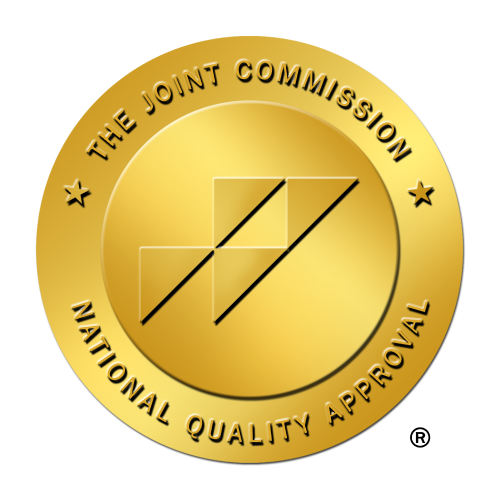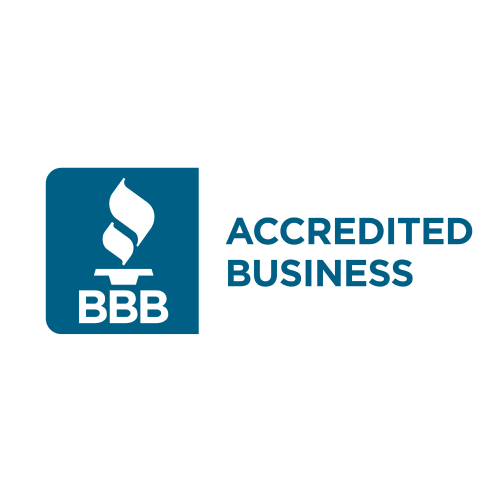Treatment & Therapy
A Better Path Treatment Programs offers a wide variety of bio-psychosocial educational and cognitive behavioral groups.
Treatment & Therapy
A Better Path Treatment Programs offers a wide variety of bio-psychosocial educational and cognitive behavioral groups. Our certified counselors teach clients about addiction and substance abuse from a biological (physiological), psychological, and social perspective. Better Path Treatment Programs uses curriculum from a variety of evidence-based programs. Our groups help our clients develop and hone the necessary skills needed to maintain long-term recovery. Topics include stress management, effective communication, managing emotions, sleep, nutrition, time management and relapse prevention. Our clinicians help clients change their negative mindsets, thoughts and behaviors which contribute to their addiction.
We believe gender specific treatment is important in recovery because it provides individuals with the best opportunity to fully explore some of the underlying gender specific issues that are contributing to their addictive behaviors. We encourage our clients to identify those issues that are most significant in their recovery.
Treatments & Therapy
Relapse Prevention and Coping Skills - are an integral component to any treatment program. Because the rates of relapse are so high for most individuals, relapse prevention should be an essential component of any recovery program. our clients will learn that for many relapse are a common struggle that is part of the recovery process. Our team of clinicians and counselors prepare our clients in case a lapse occurs by helping them understand that feeling guilt or shame for “failing” to stay sober will only make them want to use more. We prepare our clients with the ability to acknowledge the lapse and understand the reasons that lead up to the lapse, and to make the necessary changes to return to their recovery path.
Motivational Interviewing (MI) - Is an evidence-based approach to behavior change. Motivational interviewing is a counseling approach designed to help people find the motivation to make a positive behavior change. This client-centered approach is particularly effective for people who have mixed feelings about changing their behavior. Our counselors will help clients to explore their feelings and find their own motivations. Although each of our client’s path is different, our counselors use motivational interviewing, holding true to four principles throughout the recovery process. These principles are vital to establishing trust within our therapeutic relationships.
· Express Empathy
People may initially be reluctant to go to therapy for fear of being judged by their therapist or counselor. Some may even feel guilty about their negative behavior, making that judgment valid in their eyes. But judgment is not what A Better Path Treatment Programs is about. Instead of judging, our counselors focus on understanding the situation from their client's point of view. This is known as empathy. A counselor doesn't have to agree with their client to show empathy. Empathy is about surrendering your own opinions to understand someone else. This practice creates a safe space where clients feel comfortable being themselves and sharing their concerns.
· Develop Discrepancy
Developing discrepancy is based on the belief that a person becomes more motivated to change once they see the mismatch between where they are and where they want to be. Our counselors help clients identify their core values and clarify their personal goals and path forward. Goals and actions are developed in a trusting, collaborative atmosphere free from pressure. This offers an environment that is based on the person's needs, wishes, goals, values, and strengths.
· Roll With Resistance
Motivational interviewing understands that change doesn't always happen just because you want it. It's natural to change your mind many times about whether you want to change your behavior and what that process or new lifestyle looks like. Rather than challenging, opposing, or criticizing our clients, our counselor's job is to help clients reach a new understanding of themselves and their behaviors. One way they do this is by reframing or offering different interpretations of certain situations. This changing viewpoint increases the person's motivation to change. It is based on their own goals and values. For example, if a client reveals that they started drinking to cope with a partner's infidelity, the counselor might help them reframe the situation. Instead of the client blaming themselves, they may begin to see that the person cheated because of their own issues.
· Support Self-Efficacy
Self-efficacy is a person's belief or confidence in their ability to perform a target behavior. Our counselors follow the motivational interviewing approach supporting client's self-efficacy by reinforcing their power to make the changes they want. They guide them through the behavior change process, recognize the positive changes clients make, and offer encouragement along the way.
Cognitive behavioral therapy (CBT) - Is an evidence-based treatment that has been demonstrated to be effective for a range of problems including depression, anxiety disorders, alcohol and drug use problems, marital problems, eating disorders, and severe mental illness. Numerous research studies suggest that CBT leads to significant improvement in functioning and quality of life. CBT is an approach that has ample scientific evidence that the methods that have been developed actually produce change.
CBT is based on several core principles, including:
- Psychological problems are based, in part, on faulty or unhelpful ways of thinking.
- Psychological problems are based, in part, on learned patterns of unhelpful behavior.
- People suffering from psychological problems can learn better ways of coping with them, thereby relieving their symptoms and becoming more effective in their lives.
CBT treatment usually involves efforts to change thinking patterns. These strategies might include:
- Learning to recognize one’s distortions in thinking that are creating problems, and then to reevaluate them in light of reality.
- Gaining a better understanding of the behavior and motivation of others.
- Using problem-solving skills to cope with difficult situations.
- Learning to develop a greater sense of confidence in one’s own abilities.
A Better Path Treatment Programs place an emphasis on helping our clients to learn to be their own therapists. Through exercises in the session as well as “homework” exercises outside of sessions, clients are helped to develop coping skills, whereby they can learn to change their own thinking, problematic emotions, and behavior.
Our counselors emphasize what is going on in the person’s current life, rather than what has led up to their difficulties.
Dialectical Behavior Therapy (DBT) - Is a type of talk therapy (psychotherapy). It’s based on cognitive behavioral therapy (CBT), but it’s specially adapted for people who experience emotions very intensely. “Dialectical” means combining opposite ideas. A Better Path Treatment Programs acknowledges that real life is complex, and health is not a static thing, but an ongoing process hammered out through a continuous dialogue with the self and others. Our counselors aim at helping clients balancing opposing thoughts and investigating the truth of powerful negative emotions. DBT focuses on helping people accept the reality of their lives and their behaviors, as well as helping them learn to change their lives, including their unhelpful behaviors. Dialectical behavior therapy (DBT) is especially effective for people who have difficulty managing and regulating their emotions.
DBT has proven to be effective for treating and managing a wide range of mental health conditions, including:
- Borderline personality disorder (BPD).
- Self-harm.
- Suicidal behavior.
- Post-traumatic stress disorder (PTSD).
- Substance use disorder.
- Eating disorders, specifically binge eating disorder and bulimia.
- Depression.
- Anxiety.
It’s important to note that the reason DBT has proved effective for treating these conditions is that each of these conditions is thought to be associated with issues that result from unhealthy or problematic efforts to control intense, negative emotions. Our counselors will work with clients on efforts that help them learn healthier ways to cope.
Bio-psychosocial Educational & Cognitive Behavioral Groups
A Better Path Treatment Programs offers a wide variety of bio-psychosocial educational and cognitive behavioral groups. Our certified counselors teach clients about addiction and substance abuse from a biological (physiological), psychological, and social perspective. Better Path Treatment Programs uses curriculum from a variety of evidence-based programs. Our groups help our clients develop and hone the necessary skills needed to maintain long-term recovery. Topics include stress management, effective communication, managing emotions, sleep, nutrition, time management and relapse prevention. Our clinicians help clients change their negative mindsets, thoughts and behaviors which contribute to their addiction.
We believe gender specific treatment is important in recovery because it provides individuals with the best opportunity to fully explore some of the underlying gender specific issues that are contributing to their addictive behaviors. We encourage our clients to identify those issues that are most significant in their recovery.
Group Family Therapy- Our marriage and family therapist discuss important topics such as enabling, codependency and the family disease model of addiction; addiction is often referred to as the “family disease”. Knowingly or not, loved ones all play a role that can contribute to continuance of addictive behaviors. The goal is to educate families about how they can better support their loved one, while also teaching them how to set boundaries and not feel guilty or responsible for the behaviors of the addict. In addition to weekly family group and family visitation, we offer a weekly Zoom support group for spouses and loved ones.
Trauma Informed Care – Trauma informed care is designed to provide people with the skills and strategies to assist in better understanding, coping with and processing the multitude of feelings and memories associated with traumatic experiences. The central goals are to:
- Learn about trauma.
- Re-establish safety.
- Identify trauma triggers.
- Develop and deploy healthy coping skills.
- Decrease symptoms of traumatic stress.
- Practice trauma processing and integration.
There is a close link between trauma and addiction, their relationship is a two-way street. A traumatized person is at increased risk of developing a substance abuse disorder and substance abuse leads to high-risk behavior that may increase the likelihood of being re-traumatized. Drug and alcohol use also impairs cognitive and emotional thinking in a way that decrease a person’s ability to cope with traumatic events new and old.
Licensed and Certified by the Department of Health Care Services
A Better Path Treatment Programs accept most employer-provided PPO insurance, including all major companies. We provide pricing packages to those who prefer to avoid using insurance. Currently, we cannot accept State, County, or Kaiser insurance. To inquire about our pricing packages or for more information about our services, please complete the information form; one of our Admissions team members will contact you shortly.
License: 310037AP
Expiration: 02/28/2025





